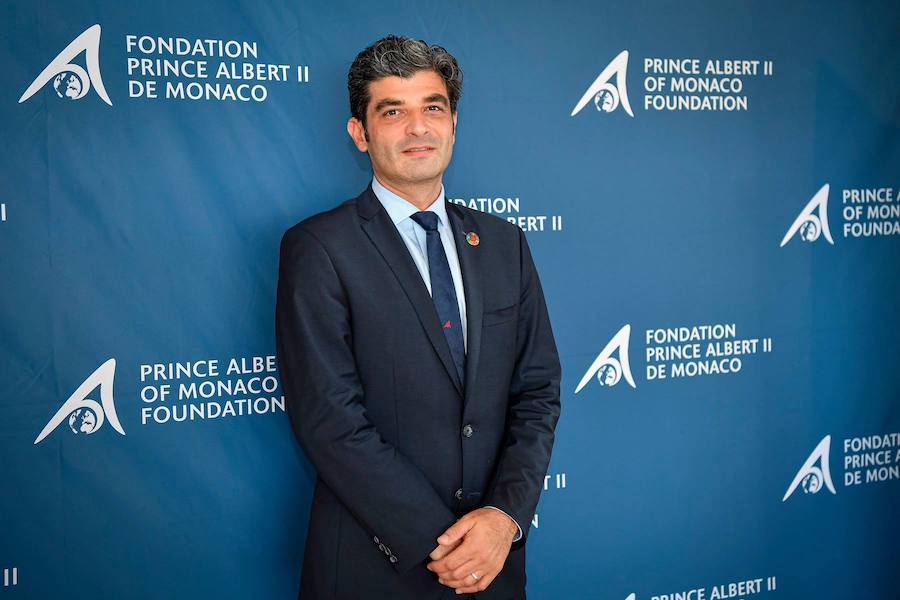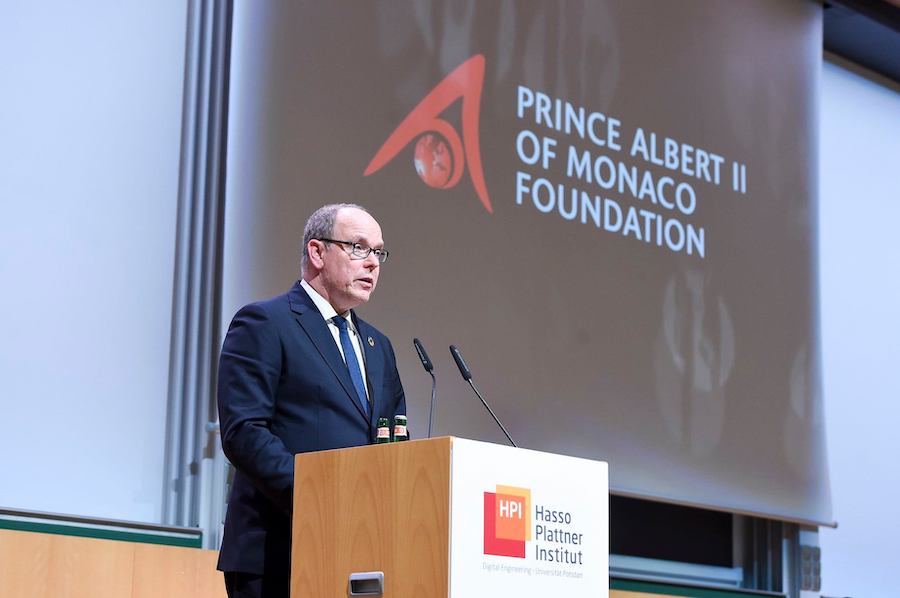As the Prince Albert II of Monaco Foundation prepares to celebrate its 15th anniversary and the 5th edition of the Monte-Carlo Gala on 23rd September, we sit down with the Foundation’s Vice-President and CEO Olivier Wenden to talk about Prince Albert’s role in his Foundation, what its biggest achievements are so far, and where the Foundation sees itself in the coming 15 years.
It was in the footsteps of his great-great-grandfather Albert I, a pioneer in oceanography who paved the way for environment protection, that Prince Albert II created his Foundation in 2006.
This small team of dedicated individuals, led by Prince Albert and Vice-President Olivier Wenden, steer the Foundation towards three specific goals: To form partnerships for projects in its priority areas of action; to raise awareness among the population and public authorities about the impact of human activities on the natural environment to encourage more environmentally friendly behaviour; and to promote outstanding initiatives and innovative solutions, in particular by awarding prizes and grants.
To date, the Foundation has financially supported 266 projects and spearheaded nine initiatives.
Monaco Life: Prince Albert is always actively involved in his Foundation, not just relying on his name to prop up the projects that it supports. How important is it to have that level of participation from the Prince?
Olivier Wenden: It makes the whole difference. It makes our DNA, our added value. The Foundation is very unique in this way. When you have the opportunity to have a chairman who is also a running head of state, things are very different. The reason is very simple: Prince Albert is deeply personally involved, and his family has always been involved, in environmental protection, of respecting nature and the sea. Therefore, it was quite natural for him to want to invest his time, his name and his energy in an action plan to participate in these worldwide efforts to save our environment.
The Foundation has instigated many initiatives for the planet, bringing together stakeholders who combine their strengths to work on a particular issue. Can you tell us more about this part of the Foundation’s work?
For 15 years now, our Foundation has been financing projects on the ground very successfully and humbly. We don’t have the pretension to achieve these goals on our own, we have achieved these advances thanks to a vast network of partners including scientists, NGOs, universities and the private sector. These topics on the ground have the opportunity to be brought to the highest political level by His Serene Highness on a bilateral agenda or multilateral arenas.
The examples are multiple, but it started with the blue fin tuna, which was saved because of the Prince’s personal involvement followed by the government through his Foundation.
We helped to create the MedFund, which is a financial fund established by the Principality, joined by France and Tunisia, to develop and strengthen marine protected areas in the Mediterranean.
The Foundation is also behind the BeMed initiative to fight against plastic pollution in the Mediterranean, and the ‘Monaco makes a commitment against deforestation’ initiative that was launched in 2010.
The IPCC Special Report on the Ocean was requested by the Prince and finally approved and presented in Monaco in 2019, and Monaco is chair of the Coral Reef Initiative together with Australia and Indonesia.
More recently there was the official launch of the Global Fund for Coral Reefs, which we were a seed investor in and which now benefits from the support of Germany and other states. The first seven multi-annual and multi-million projects have been agreed.
Therefore, there are many examples of this amazing added value and the Foundation’s ability to implement projects and discuss the environmental challenges at the highest political level.
Meanwhile, Monaco Ocean Week in March is at the crossroads of these various levels, because it is a coalition of local partners involved in ocean conservation under the leadership of His Serene Highness, gathering together the Government, the Prince’s Foundation, the Scientific Centre of Monaco, the Oceanographic Institute and the Monaco Yacht Club, as well as international governmental bodies.
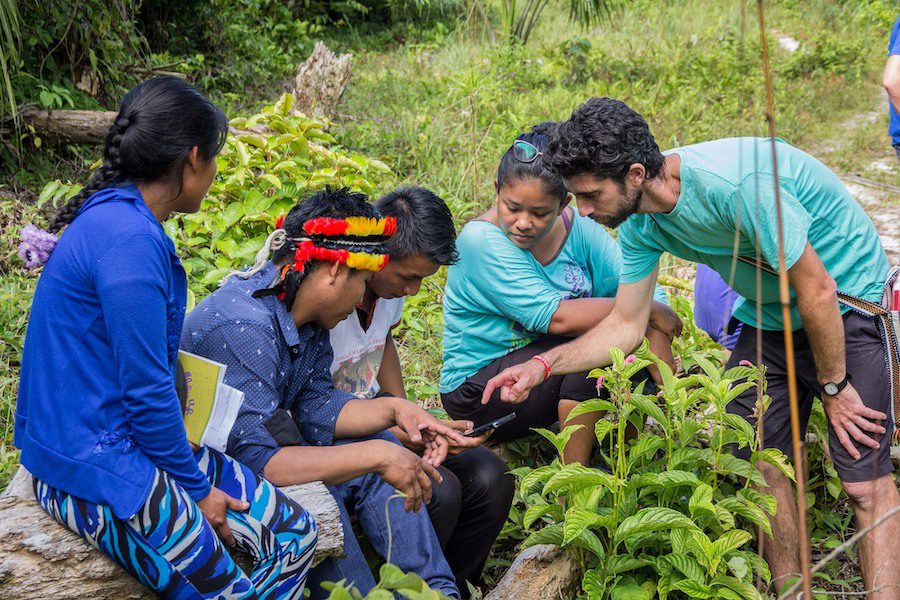
In addition to these major initiatives, the Foundation also supports community projects on the ground, from preserving the Amur Tiger on the Russian border to implanting ‘Blue Schools’ in Nepal. Why are these smaller projects important?
We can all act at our own personal level, being the individual level, the household level, the city, regional, and national level, and then the international level. All of these approaches are complimentary and not exclusive of one another. We often think that the top-to-bottom approach, waiting for national legislation or regulation, is key. But in the majority of cases, if you tackle the issue on a bottom-to-top approach, things usually go faster.
There is not one magic solution, it is a mix of solutions that works. With the BeMed initiative, for example, we decided to do both. First of all, we built a network of stakeholders – companies, local and national authorities – to help streamline deregulation and design new legislation. But in the meantime, there is also a network that supports micro projects on the ground that have an immediate impact.
So, there are various levels that, in coordination, need to be boosted to leverage local action at a much larger level. But there is also the challenge of progressing faster and quicker. This pandemic has definitely shown us that we need to act urgently, that it is no longer for the future generations, but for the ongoing generation. The majority of scientists say we have 10 years and not more to solve the problems, otherwise it might be too late. It is a question of scale and a question of time, and therefore joint action is crucial.
Let’s go back to the Global Coral Reef Fund, which is an unprecedented funding drive to finance the preservation of coral reefs. Why was that important for the Foundation to be involved in?
The protection of coral reefs is central today. They are a symbol of the impact of climate change on the ocean. Coral feeds more than a billion people across the globe, so it is central to human life on the planet, and central for oceanographic life.
The interesting part about the Global Fund for Coral Reefs is the blended finance. There is a dual mechanism involving more traditional philanthropy, but there’s also impact investment – finance from governments, private sectors, NGOs, foundations, families and individuals. The objective is to give the fund, just like we did with the MedFund, the core capital to finance projects around the world, to study the resilience of corals, to study how to conserve them in some areas, and to study how we can hopefully one day transplant some resilient corals in suffering areas. We aim to raise US$100 million to implement more projects, but several of them have already been selected, from Fiji to Indonesia. A detailed list of the projects can be found on the website.
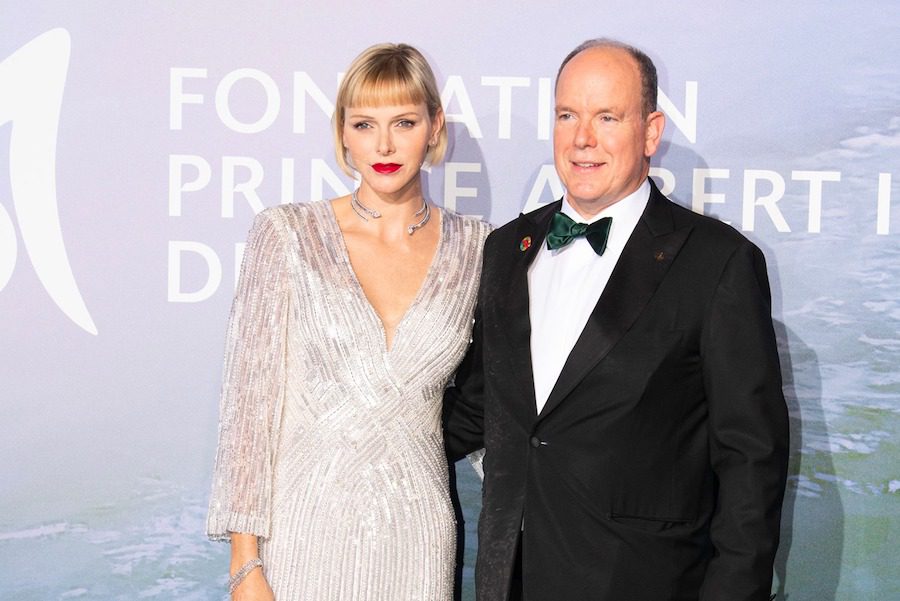
The Monte-Carlo Gala for Planetary Health on Thursday 23rd September is the Prince Albert Foundation’s largest fundraising event of the year. How much money has it generated since its creation?
It has raised enough to be able to honour all of our commitments, more than €20 million in total.
Why did the Prince Albert Foundation choose to team up with the Princess Charlene of Monaco Foundation this year?
We are particularly proud this year to join forces with the Princess Charlene of Monaco Foundation through a series of lots that will be auctioned in support of their relentless efforts for the well-being and development of children.
Taking care of the environment and the health of the planet also means taking care of its inhabitants, especially the younger generations. By uniting our two Foundations for this particular edition, which will be held in the Cour d’Honneur of the Prince’s Palace, we wanted to promote the complementarity of our actions and celebrate the deep commitment of Their Serene Highnesses for the future of humanity.
A new initiative by the Foundation this year is the Environmental Photography Award. Can you tell us more about that?
The competition was motivated by the Covid crisis and took on the theme: ‘Humanity and wildlife: crossed destinies, shared territories’. We wanted to involve professional and amateur photographers to see: a) if they believe that cohabitation is possible, b) whether it is positive, or c) if it is a tragic combination. The overall intention was to involve the community in these topics and visual photographs are usually better than words. We also thought it would be a nice way to celebrate our 15th anniversary with an exhibition, which we’ve now just taken to Rome.
Has the pandemic steered the Foundation in any particular direction?
First of all, I would like to emphasise that we had the great opportunity not to stop our activity and to honour all of our commitments, and this is important to underline because it is very unusual in this climate to achieve these goals.
It also enabled us to study and assess new initiatives to be developed and the first one will be the cohabitation between human beings and wildlife. This is a topic of importance, as the Covid crisis has revealed, and therefore we wanted to deepen this reflection.
We also have a new approach to what we are doing, and what we are doing well. This “One Health, One Planet” approach is a very wholistic and multidimensional approach, which helps to reorganise the way the Foundation introduces to the public the concept of the ocean and humanity. We are accelerating the process of federating the actors, and promoting the solutions and innovations, which are a key pilar of Ocean Week.
Frankly, we can only hope that an aftermath of Covid is that people are truly understanding of the fact that their personal health, the health of their children and their relatives, is totally dependent on the health of their environment and the health of animals. There is an interconnection of all topics and I think that again, hopefully, the great conclusion that will come after this crisis is that there will be this general knowledge and apprehension of the problems that each need to be sorted altogether. Climate cannot be sorted without dealing with the ocean issues; biodiversity cannot be seen in silence without climate and ocean; it is impossible.
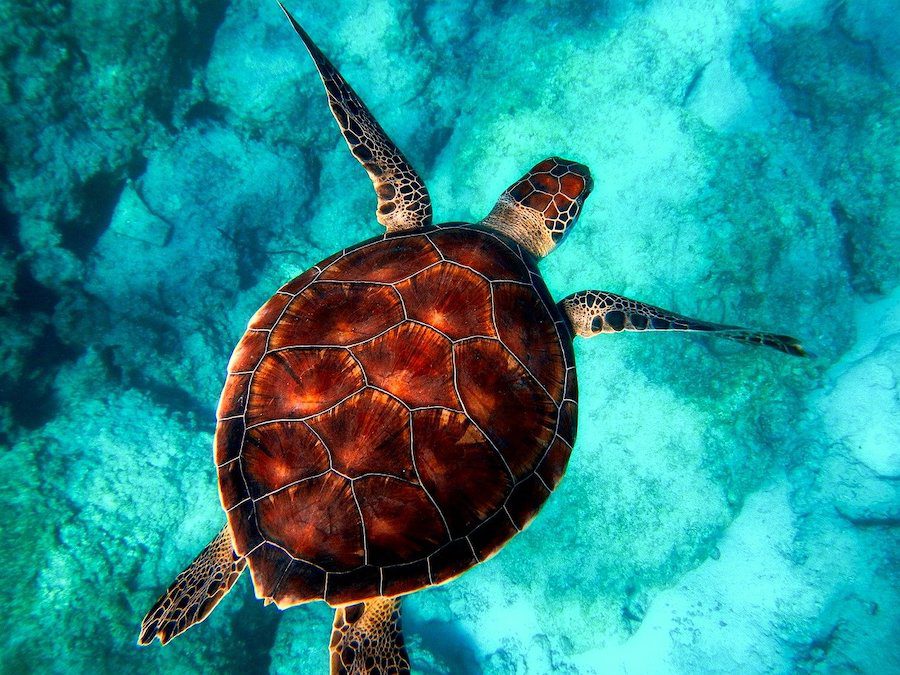
As you celebrate the 15th anniversary of the Prince Albert II of Monaco Foundation, where do you see the next 15 years?
I don’t think we can plan that far ahead, but our Board of Directors last year decided that, over the next couple of years, we will continue to structure, strengthen and develop our own initiatives – so that’s a concept that is brought to life by the Foundation and which we look for sponsors, project managers on the ground and actors to federate. BeMed is one such concept that we have achieved, and we have seven initiatives ongoing at the moment. We have been given the green light to strengthen these initiatives and therefore maybe do fewer projects, those supported by others looking for financial support. We would like to achieve a 50-50 balance.
Meanwhile, we are about to launch new initiatives in 2022, and we will continue to federate the actors on various topics, to help raise awareness. This is a day-to-day job and we cannot release the pressure on this topic. In parallel, we will help leverage the solutions that exist. Sometimes they just need to be put to the right companies, the right decision makers. Sometimes they are small, but we try to scale these solutions on a much larger level.
So, I would say the Foundation will continue to bridge this gap, to connect the dots between the decision makers, the private sector and the NGOs.
Olivier, you have been a part of the Foundation for seven years now, serving as vice-president for almost two years … how have you found the experience?
The personal experience is outstanding and I would say that time flies when you work with a chairman who is personally involved on a very regular basis. We can see the results on the ground, as well. We can see that involvement from the Prince and his Government can lead to great successes in the international arena. So, it is great news for Monaco, and it’s also great news for the planet. It is a pleasure to be part of this team, a dedicated small team.
In fact, one of our challenges is that we need to keep our team as flexible as possible with this start-up spirit, even though we are tackling more and more topics and challenges that requires full commitment. And I must thank the team who is working with me because it really is a collective effort, and I can only thank them for their commitment.
Top photo of Olivier Wenden by Stéphane Danna, Government Communication Department
